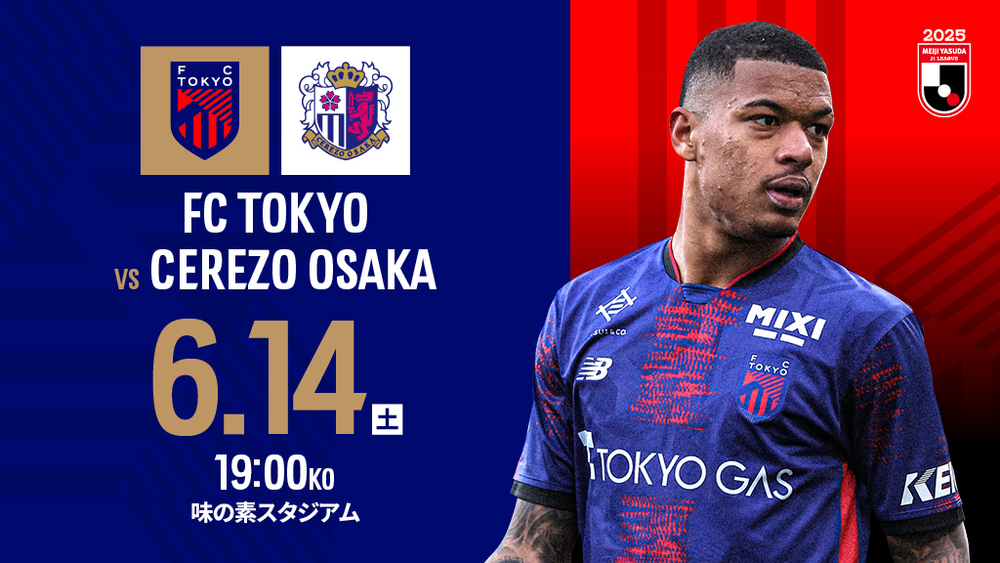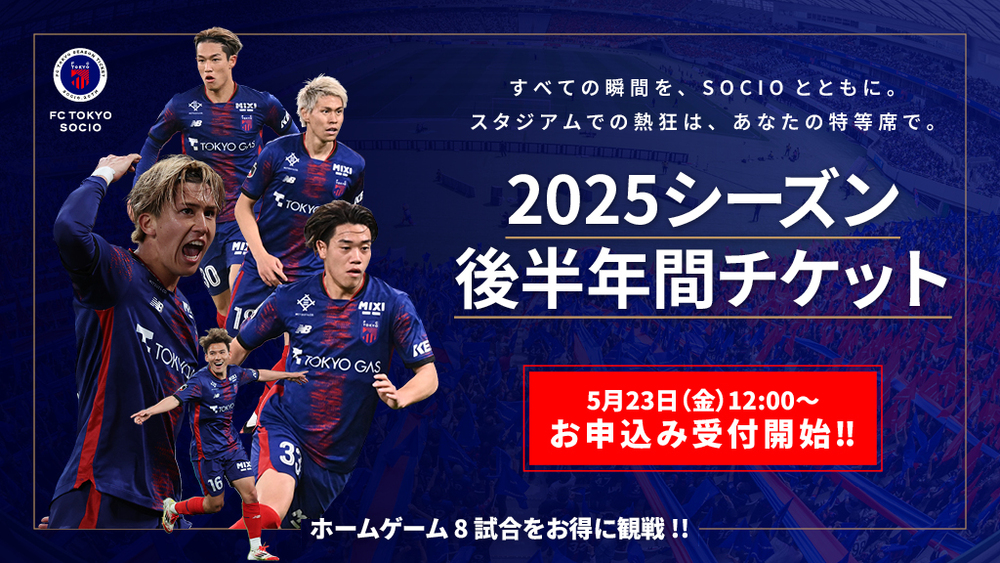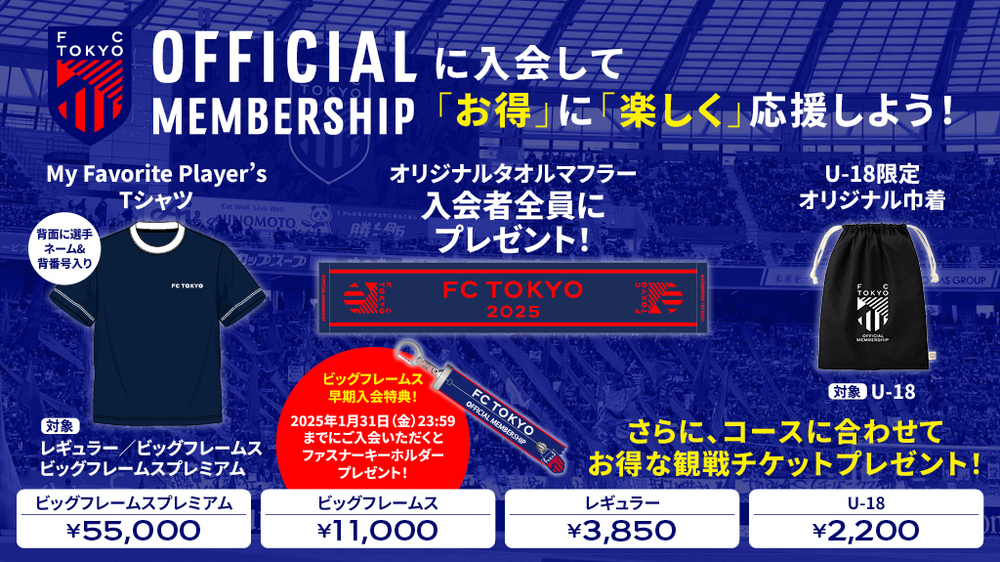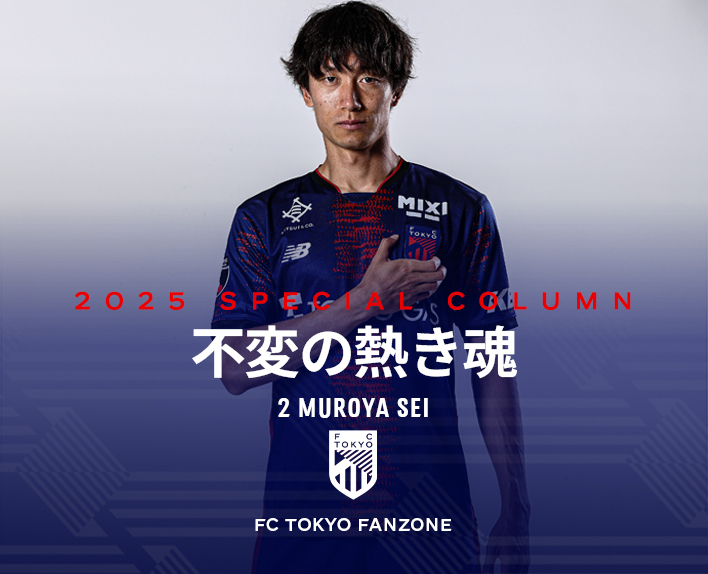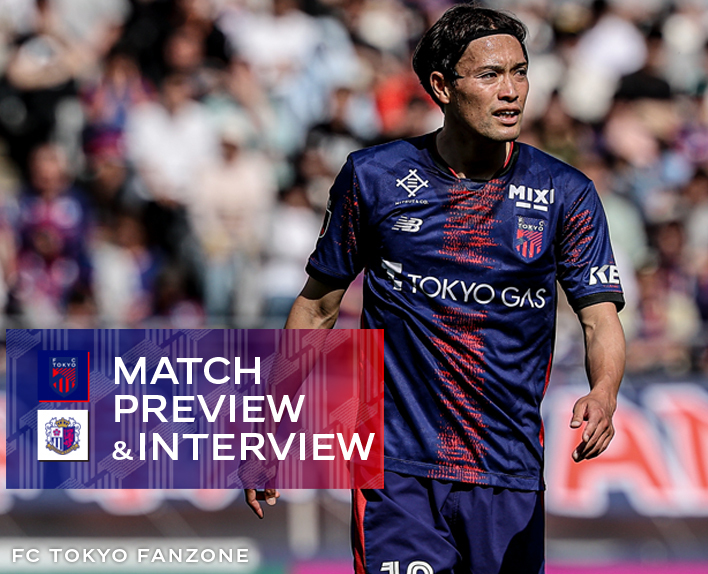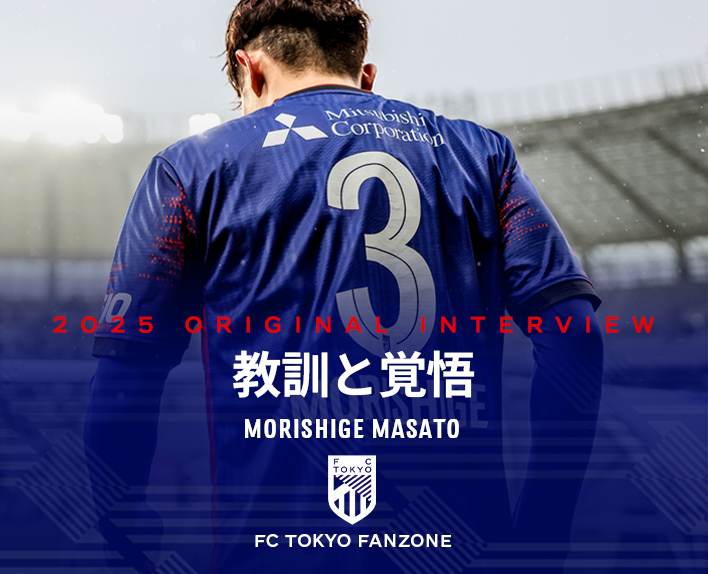"Nothing has changed, right?"
Sei MUROYA, who returned after about five years, said that with a smile. His natural and relaxed personality remains just as it was back then. The sudden use of the Senshu dialect brings a sense of nostalgia.
The first time I watched Muroya play live was 12 years ago, shortly after entering Meiji University, during the Tokamachi camp in Niigata. During that period, he came on as a center back in a practice match against Nippon Sport Science University held on the Croatian pitch, and stood out with his energetic performance.
I can never forget what happened after that match. When Ranko POPOVIC, who was coaching the team at the time, finished the group interview, he said this to us.
"Why is no one asking about Muroya? He stood out more than anyone else in today's match. He's the biggest surprise."
Ignoring the public relations officer's wry smile, the coach passionately continued to talk about Muroya's strengths. The official joining came three years later. In the winter of his third year at Meiji University, he put on the red and blue uniform, ready to start full of hope.
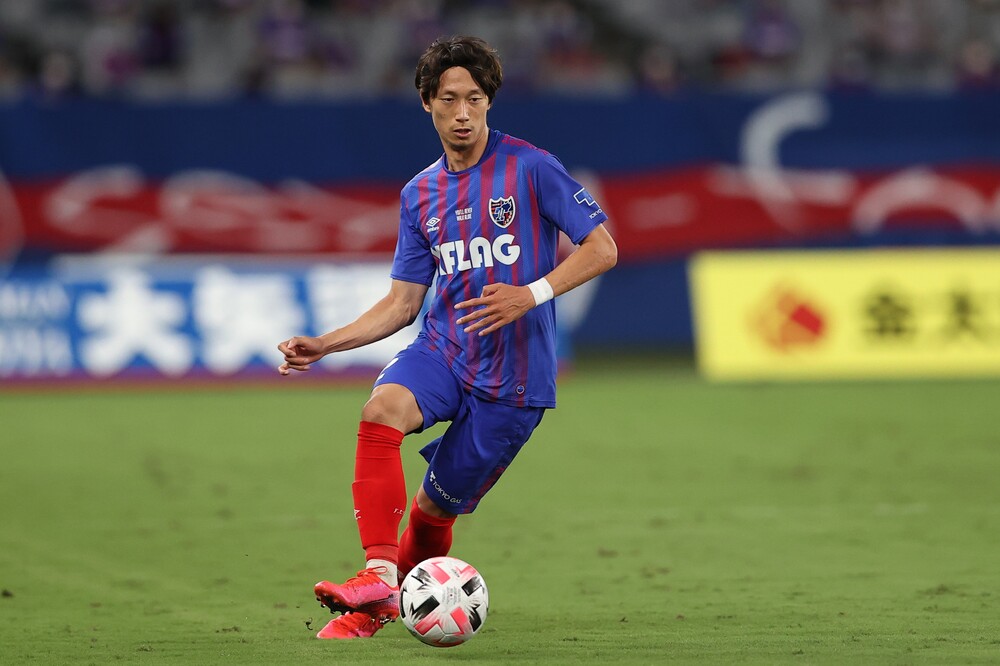
However, immediately after joining, during practice at the Miyazaki camp, he suffered a serious injury with a Jones fracture in his left foot. His professional career began with hardships. From there, he managed to secure a spot in the main tournament of the 2016 Rio de Janeiro Olympics, and the following season, he was selected for the Japan national team for the first time, progressing steadily in his career.
Then, in the summer of the 2020 season, he made a major decision. He had long had a strong desire to go abroad, and at 26 years old, the challenge in Europe was a timing that was just about right in terms of age. When a formal offer arrived from Hannover 96 in the German 2nd division, he discussed it with Kenta HASEGAWA and others within a week and conveyed his desire to take on the overseas challenge. His past career choices were also characterized by the quick decision-making typical of him, who said he "has always trusted his intuition."
"Transferring in the middle of the season causes trouble for the team. I also feel very sorry about that. However, considering my short football career, I couldn't refuse."
He spoke on the phone with Genki Haraguchi, who was then with Hannover, and said, "I heard about the situation over there and was told 'Come join us.' First, I will go to a second-division team, and I want to contribute to getting them promoted to the first division." While Sei MUROYA firmly states, "I never think that being in the J.League means I can't grow," he also said that experiencing a new environment and culture outside of soccer was an encouraging factor.
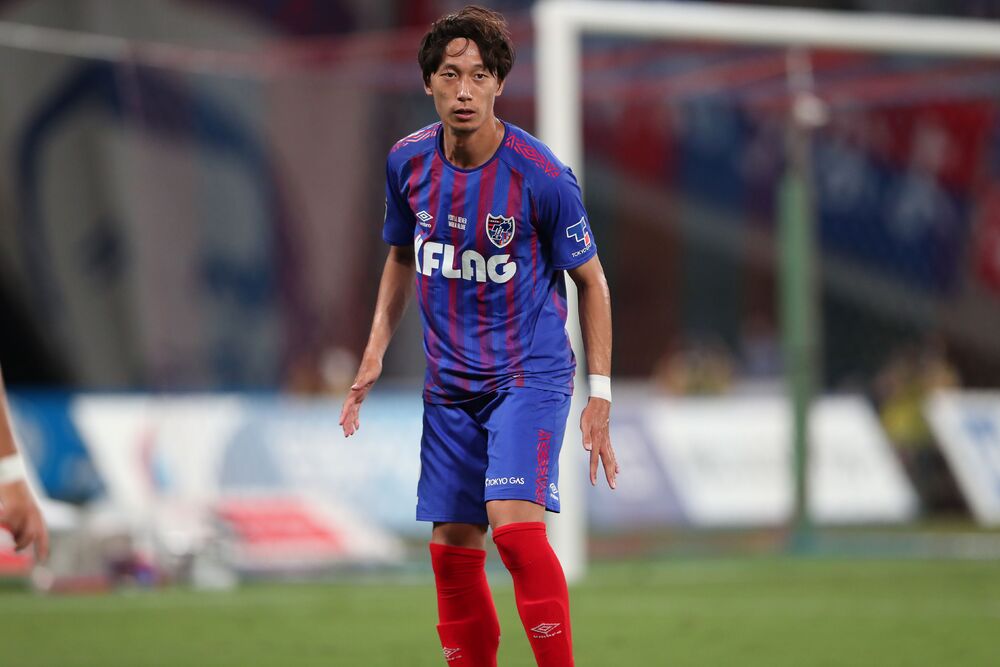
"I want to absorb various things not only as a soccer player but also as an individual. I have a strong desire to experience ways of thinking, scenery, and environments that do not exist in Japan."
Furthermore, heading into his final match in the blue and red, with whom he shared four and a half seasons of ups and downs, Muroya spoke as follows.
"I have played over 100 matches solely for Tokyo. There have been both good seasons and bad seasons. I have participated in many games and gained a lot of experience. I want to somehow win in the end and go to Germany on a good note. As always, I want to play in a way that captivates fans and supporters emotionally."
Keeping that promise, in the last match before going to Europe against Nagoya Grampus, he became the starting point of the winning goal, leaving no mess behind. He approached the 'farewell' ceremony on the pitch as a parting gift of victory, and bowed deeply in front of the gathered fans and supporters, saying this.
"It is unfortunate that I couldn't present the title to everyone, but when the offer arrived, with the desire to fulfill my dream and to have an experience I had never had before, I couldn't refuse."
He asked for understanding regarding his sudden mid-season transfer, and concluded by saying, "I will never forget the love from the fans and supporters who celebrated victories with me and always encouraged me even in defeat." Holding a bouquet, he made a lap around the stadium, bidding farewell to the familiar "home."
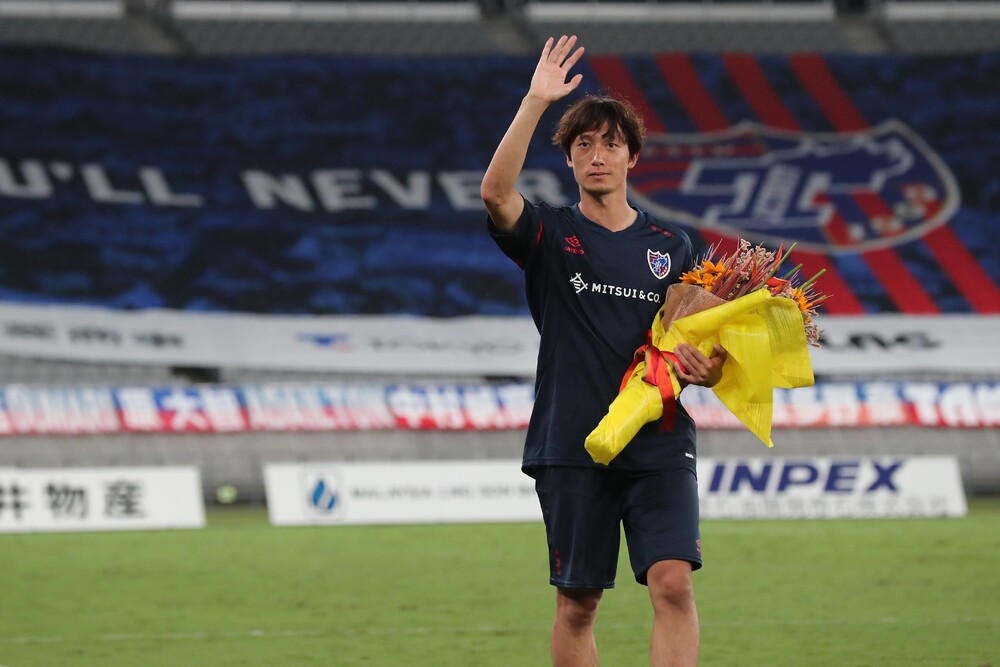
When Muroya runs as if carving the pitch, cheers rise up in the stadium. I absolutely loved that atmosphere, reminiscent of festival music. Strong in one-on-one battles, his direct confrontations with opponents could be described as the "Flower of Edo." That aggressive playing style did not change at all in Germany.
"Playing as a foreign player in a completely different environment. I think I was able to gain such a valuable experience. But, I haven't really changed much. Maybe the fact that I haven't changed is one of my good points."
He played a total of 151 official matches over five seasons in Germany. During that time, Tokyo continued to support Muroya. At this stage, nearing the end of his career, they confirmed their mutual intentions. His return this summer has been decided.
"I have been thinking since I went to Germany that it would be nice to return to Tokyo someday. For five years, I have been in contact with Tokyo and they have always cared about me. At this timing, they made a good offer with enthusiasm, so it wasn't something I had to think too hard about."
When asked about the secret to consistently playing matches in Germany, he answered very seriously, "I wonder... it's probably about the mindset. Really, it's about spirit and determination. That's all there is." His unchanged, slightly offbeat answer made me burst out laughing.
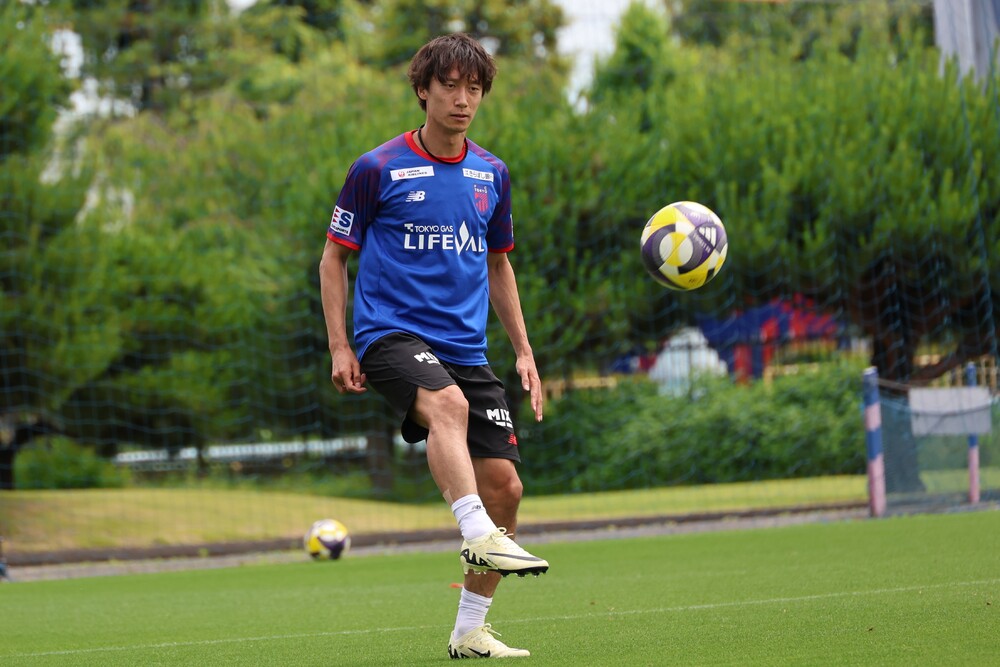
He was the same off the pitch as always, and he hadn't changed on the pitch either. He always gives his all and never slacks off no matter the situation. The intense, fiery play created a sense of tension at the Kodaira Ground in a good way. Having grown one or two sizes bigger, he puts on the blue and red number 2 jersey for the first time in five seasons. The passion from those days hasn't cooled down at all. His freshly unleashed fighting spirit returns to Ajinomoto Stadium.
"I'm already prepared. Since it's a familiar club, I understand the atmosphere of Ajinomoto Stadium from the way the match starts and everything else. I'm not too worried about that. It's been a while since the J.League, so I don't know what will happen, but I hope to get in smoothly. I want to show my passion for the game. I believe giving my all in play is my strength, and I hope to contribute that to the team."
Tokyo has not won any of the last 4 official matches, and the team's condition is far from favorable. To dispel such an atmosphere, Muroya is the perfect presence.
"I think it's just that my confidence is a little shaken because we haven't won. It's not just about fighting spirit, but I think that's the most important thing. A positive attitude and a tenacious approach are what lead to victory. Especially in the current situation. That's why I want to lead in those areas. It's been my playing style since the old days, and that's also my strength. Winning in any way is the most important thing. That's truly crucial for the team right now. I want to do what I can. I want to convey that to the people watching."
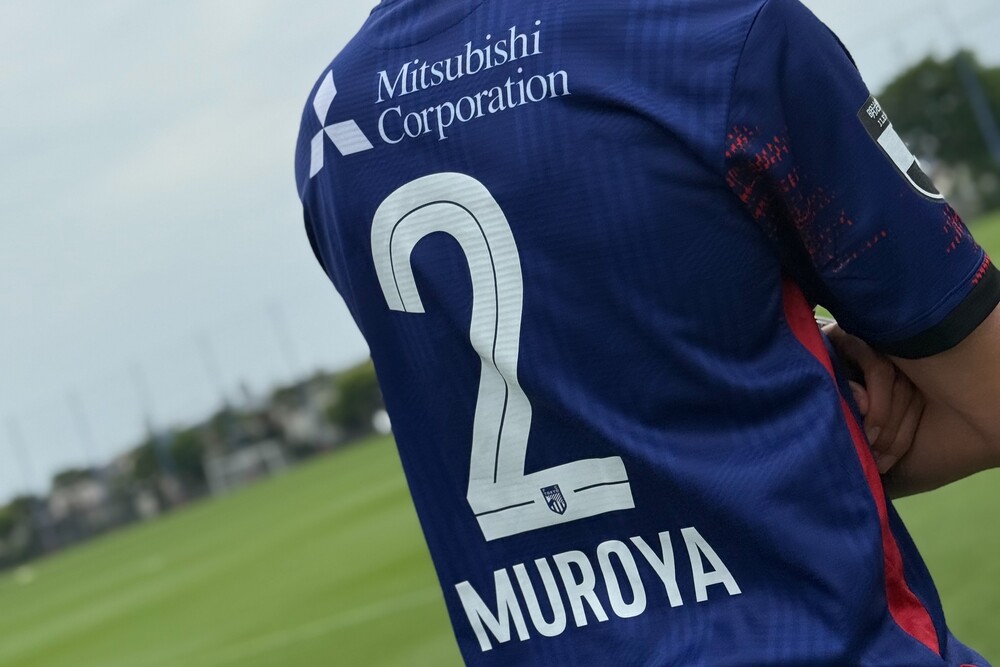
We are fully prepared to fight together once again. When number 2 dashes swiftly along the touchline at Ajinomoto, cheers resembling festival music will erupt. If Muroya lets out a roar while blocking the opponent's breakthrough, many people in the stands will likely raise their fists in unison.
Pure and single-minded feelings resonate deeply. Captivated by the flower of Edo, Sei MUROYA.
The intersection of that promise is here at Ajinomoto.
(Honorifics omitted in the text)
Text by Kohei Baba (Freelance Writer)
